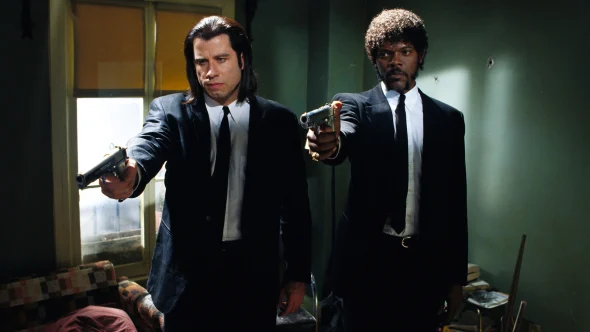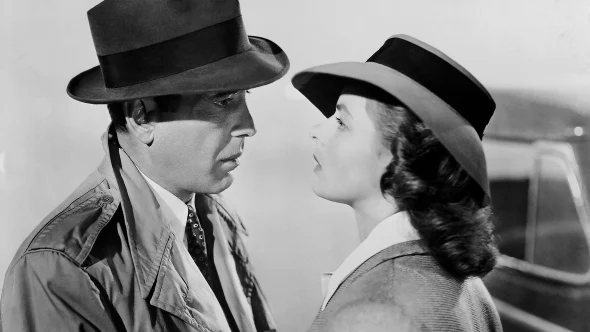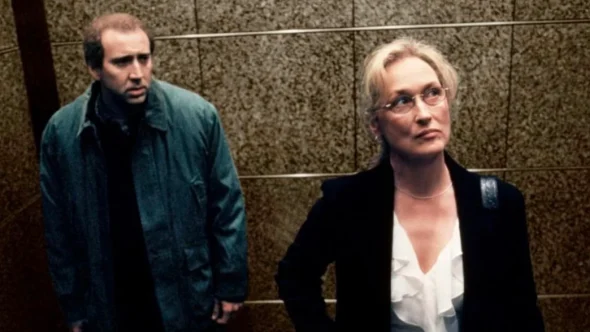
B.J. Novak made his directorial debut during the sixth season of The Office. An original writer, producer and star on the beloved sitcom, he first helmed the 2009 episode "Scott's Tots" (an instant classic), followed by additional episodes of The Office, then The Mindy Project, and then, The Premise, the Hulu anthology series that Novak created. But he always knew he wanted to be a filmmaker.
Novak's debut as a feature director and screenwriter is Vengeance, in which he plays an aspiring podcaster who travels from New York to small-town Texas to attend the funeral of a woman he'd been hooking up with, only to stumble headfirst into a potential murder mystery — and the perfect story for a podcast. The movie combines some of the cringe comedy of The Office with thriller elements inspired by his own directing idols.
"All of these movies that I love, I love because they taught me what was possible," Novak says. "I think the lesson I learn from every film is what is possible — and the answer is anything. You just have to always do your best to live up to it."
Below, Novak shares with A.frame five films that made him want to make movies and the impact they've had on his work. "I'm working on the next screenplay now and it's even more ambitious, so I hope I get a chance to make it."
MORE: Seeking 'Vengeance': How B.J. Novak Took His Directorial Debut From Script to Screen (Exclusive)

Directed by: Quentin Tarantino | Written by: Quentin Tarantino and Roger Avary
That was the film that not only made me want to be a filmmaker, but showed me there was such a thing as a filmmaker. I think everyone in my generation who wanted to become a filmmaker, it's because of that movie. I was 14 years old, I saw it in the theater on opening night, and — like a lightning bolt — it hit me: Somebody made this movie. It was when "Son of a Preacher Man" came on, and it hit me — someone chose the song. I knew what acting was, I knew what writing was, but I didn't know that there was an author of a film and that was the director. And I knew who Quentin Tarantino was — I had seen his picture in Entertainment Weekly — and I was like, 'Oh, that's a cool person who does this.' The movie is just so thrilling, but I thought of it as film with an author for the first time. And I knew that was something that a person could do.
Where to Watch: The Criterion Channel, HBO Max
Written and Directed by: Wong Kar-wai
My friend showed me Chungking Express when we were about 20, and it was the most aesthetically exciting movie I had ever seen — the music and the sequence set to 'What a Difference a Day Makes,' where he remembers a brief affair with a flight attendant, and the whole thing is basically a montage of their brief romance, and then, it's over. I'd never seen anything like that in film. It taught me a whole other feeling that a film could do, that wasn't about narrative.

Directed by: Michael Curtiz | Written by: Julius J. Epstein, Philip G. Epstein and Howard Koch
Casablanca is a classic for a reason. It's maybe the best screenplay ever written. That fact that it has so many lines that are immortal, and they fit perfectly into the story as well. It's a love story. It's historical. And when I see those lists of greatest films of all time, I feel some of them don't really deserve to be there but Casablanca does.

Directed by: Spike Jonze | Written by: Charlie Kaufman
I was an intern at October Films — which, by a winding path, sort of evolved into Focus Features, which is where this movie [Vengeance] is — and, as an intern, I read the script to Adaptation. I knew Charlie Kaufman's work — I was a fan — but I had never read anything like that. I told everyone, 'This is the most brilliant script of all time,' up there with Casablanca in its own meta way. The movie came out and it was every bit as good as I thought it could be. It was a movie about writing itself, but also captured everything that writing tries to capture in expressing why that's impossible. The movie, it's an impossible feat.

Directed by: Martin Scorsese | Written by: Paul D. Zimmerman
My dad showed me that movie, and it's like, you get it or you don't. And we both got it. Now that I know a little more about film history, it's especially amazing that was Scorsese and [Robert] De Niro's follow-up to Raging Bull, and it was a complete bomb. It's even crazier that they went out on such a limb for a movie that has such a specific, minute sense of humor. It's such a risk-taking movie, and it's so beautiful and precise with the way it expresses everything it's trying to express, which is this story about fame and performance and being crazy. And the line between being deluded and driven is impossible to know when you want to be a comedian, which I have been, or a filmmaker. So, I found it extra funny because it sort of made fun of that line that I wasn't sure which side I was on.







